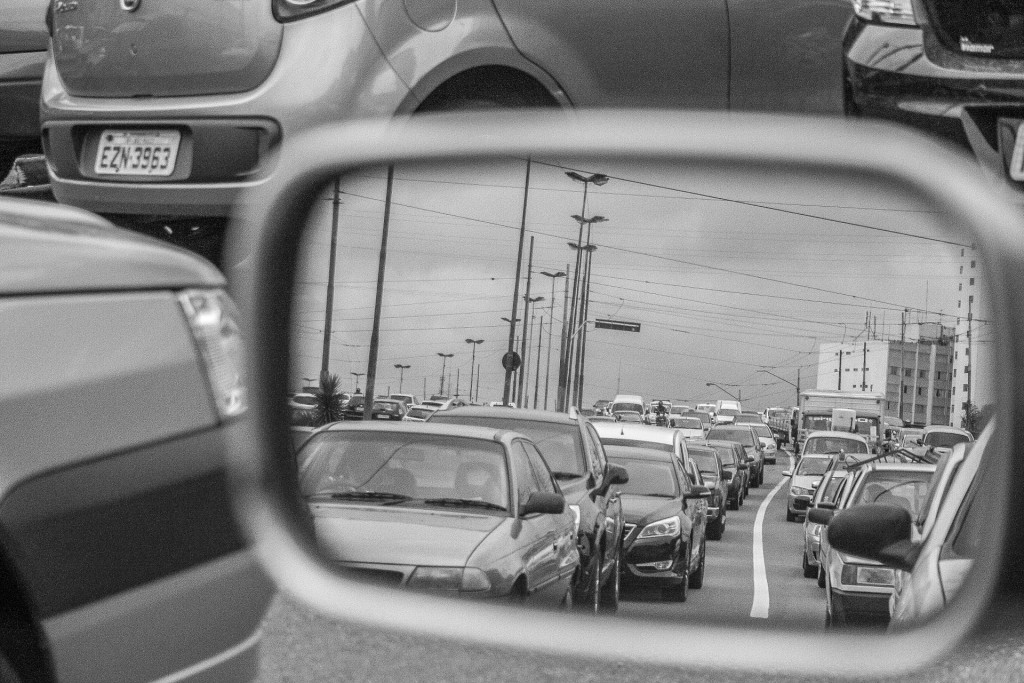 “That dude cut me off! What a jerk!” is a sentiment I *may* have expressed a few times in my life. But what do I truly know about the other driver?
“That dude cut me off! What a jerk!” is a sentiment I *may* have expressed a few times in my life. But what do I truly know about the other driver?
When I call him a jerk, I’m basing my entire opinion of this person’s ability to drive, and even their character, on one particular moment of his driving lifetime.
I pulled into Dunkin Donuts one morning for a cup of coffee, and the cashier was gruff. She seemed annoyed that I didn’t have the money ready the moment she told me the cost. That was only exacerbated by my decision to pay with exact change, so I could begin to shrink my ever-growing pile of coins in my car.
I said thank you to her when I received my drink, and she did not respond. She just closed the drive-thru window and I was on my way.
It would be easy for me to say, “Wow, what a rude person!”
However, our interaction lasted maybe 30 seconds. It may have been a rude interaction, but it’s not fair of me to judge her entire character based on those 30 seconds.
When we can separate the entirety of a person from their actions in the moment, we open ourselves to a larger perspective. What if this driver just didn’t see me? I know I’ve cut people off in the past on the roads.
Not once has it been malicious. For example, I’ve never looked to change lanes and thought, “Oooh! That car. That’s the one. That person I have no idea about, can’t even see their face… that’s the one I am going to cut off. Because that person deserves it, and I’m better than them.”
It’s always been because I misjudged how fast they were traveling, or perhaps they were in my blindspot and I had no idea they were even there.
Yet when we are on the receiving end of these transgressions, we take them personally. We consider our own perspective alone, and in turn, make the other person into an enemy.
Buddhist teacher and psychologist Tara Brach calls this the “unreal other.” We lose all sight and perspective that they are full human beings, with love and hopes and dreams of their own.
When we feel aggressed against, the other person becomes a two-dimensional enemy.
Instead, if we can see that this was a singular act, independent of all others, we open ourselves to the possibility that this person was having a really bad day of their own.
Or maybe they just made an honest mistake.
When we shift our perspective like this, we go from seeing others as ill-intentioned enemies to people like you and me who have their own best intentions, wants and wishes, and hopes and dreams.
Just like we do, they had an off moment.
Everyone we encounter wants the same thing for themselves – to be happy, to be loved, to have a good life. We all have different definitions of that desire, of course, and different means to achieving that end.
But under it all, isn’t that how we all perceive ourselves? Each of us is the protagonist in our own life story, and anything that challenges that core narrative is something “bad” that we must fight.
And now consider the fact that almost all of us walk around with some variation of this perspective on life.
When it comes to shifting our perspective of this “unreal other,” I have found that meditation and mindfulness are wonderful tools.
In meditation, we practice noticing each moment as it arises. We treat that moment as independent of all others. While one moment naturally and seamlessly flows into the next, we train ourselves to witness what is here, right now, and let go of what just happened.
One thing that naturally arises from this selfless witnessing of the moment is compassion. Genuine compassion reflects the good in others. We can see their behavior as an attempt to get their own needs met.
I find it’s not always easy, and it’s not generally my first response, but when I embrace compassion, I naturally give others the benefit of the doubt. I see my own limited perspective, and that I don’t have the whole story.
If we apply that principle in our life, perhaps we can see that someone being rude, or a driver cutting us off, is just a moment of life. It’s not necessarily indicative of a person’s character, morals, or intentions.
Maybe that driver who is driving slowly ahead of us is having their first time back on the road after a car accident.
Maybe the driver of the car right on our tail is in a hurry to get to the hospital where his wife is giving birth.
Perhaps the gruff drive-thru attendant just found out her boyfriend cheated on her.
By separating the action from the person, we open the door to compassion and empathy. Not only will that ease our own stress levels, but we can provide some greater ease for the person we are in the situation with.
All of this paves the way for a happier and more peaceful life.




I love this website. It’s so informative and has led me to understand and practice a variety of different techniques! Thank you!